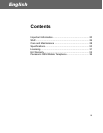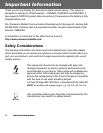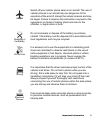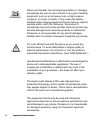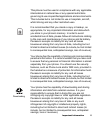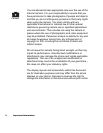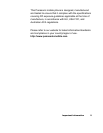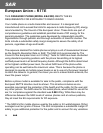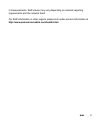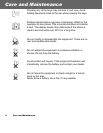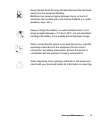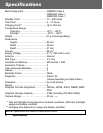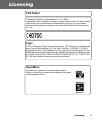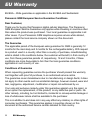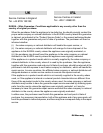
26 SAR
SAR
European Union – RTTE
THIS PANASONIC PHONE (MODEL EB-X300) MEETS THE EU
REQUIREMENTS FOR EXPOSURE TO RADIO WAVES.
Your mobile phone is a radio transmitter and receiver. It is designed and
manufactured not to exceed the limits for exposure to radio frequency (RF) energy
recommended by The Council of the European Union. These limits are part of
comprehensive guidelines and establish permitted levels of RF energy for the
general population. The guidelines were developed by independent scientific
organisations through periodic and thorough evaluation of scientific studies. The
limits include a substantial safety margin designed to assure the safety of all
persons, regardless of age and health.
The exposure standard for mobile phones employs a unit of measurement known
as the Specific Absorption Rate or SAR. The SAR limit recommended by The
Council of the European Union is 2.0 W/kg*. Tests for SAR have been conducted
using standard operating positions with the phone transmitting at its highest
certified power level in all tested frequency bands. Although the SAR is determined
at the highest certified power level, the actual SAR level of the phone while
operating can be well below the maximum value. This is because the phone is
designed to operate at multiple power levels so as to use only the power required
to reach the network. In general, the closer you are to a base station antenna, the
lower the power output.
Before a phone model is available for sale to the public, compliance with the
European R&TTE directive must be shown. This directive includes as one
essential requirement the protection of the health and the safety for the user and
any other person. The SAR value for this model phone, when tested for use at the
ear, for compliance against the standard was 0.863 W/kg. While there may be
differences between the SAR levels of various phones and at various positions,
they all meet the EU requirements for RF exposure.
* The SAR limit for mobile phones used by the public is 2.0 watts/kilogram (W/kg)
averaged over ten grams of tissue. The limit incorporates a substantial margin of
safety to give additional protection for the public and to account for any variations




